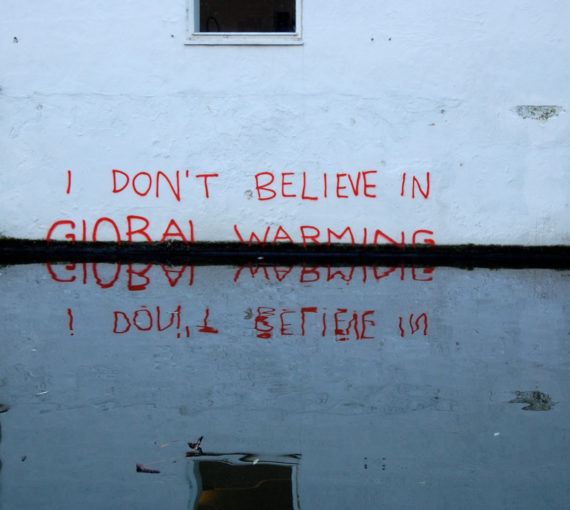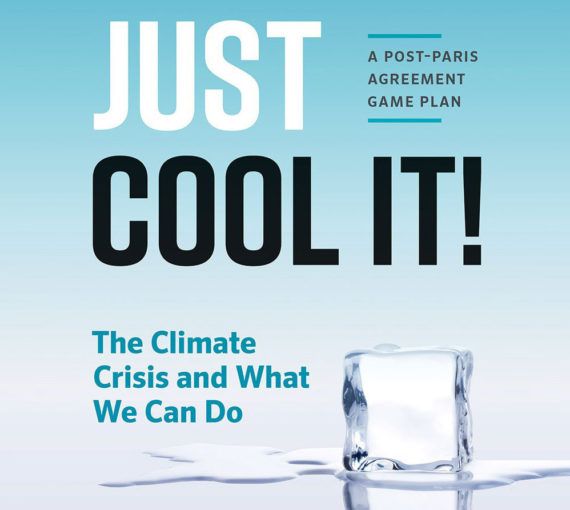
Scientists have found that ocean heat waves are rapidly increasing around the world, killing off kelp, corals, shellfish and other marine life. (Photo: NASA Goddard Space Flight Center via Flickr)
A common one is that if you drive a car, buy any plastic goods or even type on a computer keyboard your observation that we need to reduce fossil fuel use is not valid — no matter how much evidence you present. Like the “CO2 is plant food” claim, it’s a poor argument, but for different reasons. It’s easy to refute the junk science claim with large amounts of available evidence. This one’s simply a logical fallacy.
The statement that gas-fuelled cars cause pollution is true whether or not the person making it drives a car, just as a claim that automobile emissions are harmless is false, regardless of the claimant’s car ownership or driving habits.
As well as being a faulty assertion, pointing out the many uses for fossil fuels in an attempt to reject the need to reduce reliance on them is actually an argument in favour of burning less coal, gas and oil. Fossil fuels are useful for many purposes — from life-saving medical equipment to computer keyboards — so why extract, transport and burn them so rapidly and wastefully? Supplies aren’t endless.
Perhaps some people haven’t thought things through. Or maybe they don’t have strong arguments against the need to protect the air, water, soil and biodiversity that keeps us healthy and alive. With a subject like climate change, it’s somewhat understandable. In this “post-truth” era of infinite information, it’s difficult to get a good grasp on many subjects, let alone one as complex and massive as global warming. Most people don’t have the time or expertise to read through and comprehend the massive volumes of peer-reviewed science on phenomena such as feedback loops, ocean acidification, extreme weather events, species extinction and sea level rise.
Fortunately, some excellent resources provide information for people with varying levels of knowledge and expertise. Skepticalscience.com offers a big-picture approach by examining the peer-reviewed literature. It’s “Most Used Climate Myths” section describes false claims and lets users click for “basic,” “intermediate” or “advanced” explanations of real evidence.
You can also find accessible science on the U.S. National Oceanic and Atmospheric Administration and National Aeronautics and Space Administration websites. The American Institute of Physics offers a comprehensive history of climate science, as well as other information.
Media outlets with considerable, credible coverage include The Guardian and National Geographic, and environmentally focused websites such as Grist, EcoWatch and the National Observer. Desmog Blog’s timely articles and extensive database shed light on what’s behind concerted efforts to downplay or dismiss the seriousness of climate change. Websites for environmental groups like the David Suzuki Foundation, Pembina Institute and others are also good information sources. Just Cool It!, a book coming out April 22 by Foundation senior editor Ian Hanington and me explains climate change and focuses on solutions.
Many other books, websites, publications, films and more offer clear explanations of climate change and what it means for us. The point is that evidence-based information arms people with tools to confront humanity’s greatest crisis. It’s increasingly clear we can’t rely on politicians to get us out of the mess we’ve created. The current U.S. administration is full of people who reject the overwhelming evidence for human-caused climate change. In Canada, our government has some good climate policies but continues to approve fossil fuel infrastructure projects.
Will good information change the views of those who reject environmental protection? It’s hard to know. But for people who care and want to understand, facts are crucial to bringing about much-needed change.
The silver lining of the irrationality that has descended on the U.S. is that it has sparked a growing movement to promote scientific evidence and science-based solutions. The March for Science, taking place in cities throughout the U.S. and beyond on Earth Day, April 22, is one example.
We have scientific evidence and rational arguments on our side. Let’s use them to support solutions.



